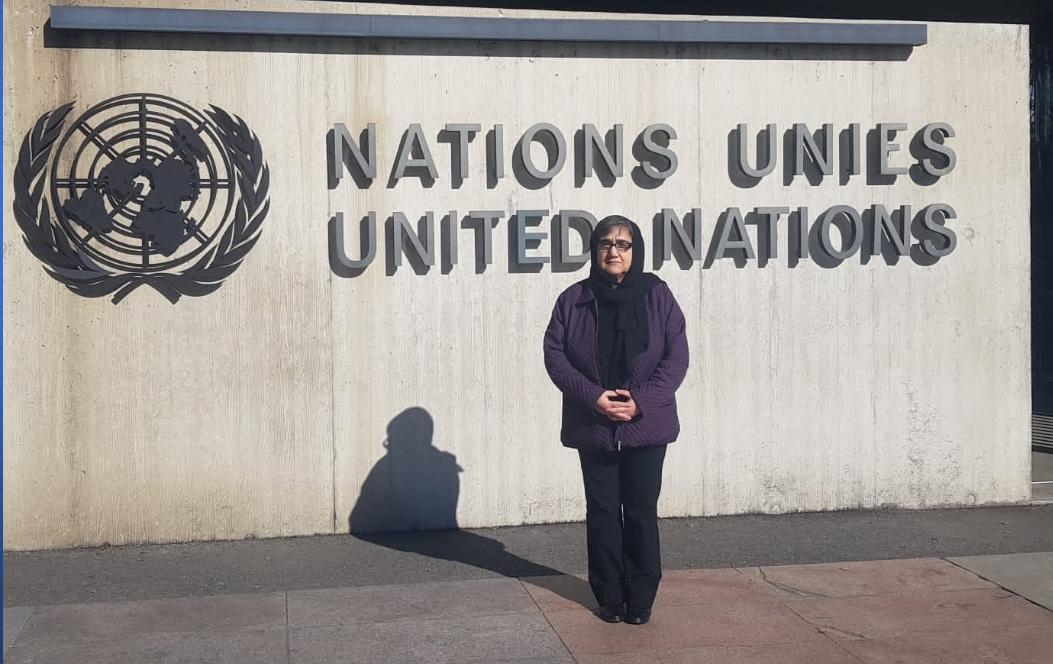‘Without reason, I cry. I can’t sleep’: The Afghan judges trapped in hiding, fearing reprisal from the Taliban
Exclusive: Aafia*, 48, had her life turned upside down when the Taliban seized control of Afghanistan – and she’s still in hiding two-and-a-half years later. Maya Oppenheim reports


Your support helps us to tell the story
From reproductive rights to climate change to Big Tech, The Independent is on the ground when the story is developing. Whether it's investigating the financials of Elon Musk's pro-Trump PAC or producing our latest documentary, 'The A Word', which shines a light on the American women fighting for reproductive rights, we know how important it is to parse out the facts from the messaging.
At such a critical moment in US history, we need reporters on the ground. Your donation allows us to keep sending journalists to speak to both sides of the story.
The Independent is trusted by Americans across the entire political spectrum. And unlike many other quality news outlets, we choose not to lock Americans out of our reporting and analysis with paywalls. We believe quality journalism should be available to everyone, paid for by those who can afford it.
Your support makes all the difference.Aafia* is battling debilitating migraines and her teeth are falling out, possibly from stress. But she is unable to go to the dentist or the doctor because she is in hiding, living in constant fear that the Taliban will track her down and kill her.
“I am very angry,” she tells The Independent from her secret location in Afghanistan. “Without reason, I cry. I cannot sleep because of the fear and the stress.”
The 48-year-old judge had her life turned upside down when the Taliban seized control of the country following the fall of Kabul in August 2021. The group went on to release thousands of prisoners, with judges like Aafia left petrified that the criminals they had sent to jail – including terrorists and senior al-Qaeda operatives – would track them down and seek revenge.
Sadly, Aafia’s plight is not unique. Campaigner Marzia Babakarkhail, a former family court judge in Afghanistan who now lives in the UK, says more than 180 judges have escaped Afghanistan since the Taliban seized power, fleeing to countries such as the UK, US, Canada, Germany and France. Another 11 women judges are believed to have fled to Pakistan, from where it can be easier to have asylum claims for other countries processed.
But Aafia is one of more than 40 female judges who have been unable to escape the fundamentalist regime and are still trapped in hiding. Their health is deteriorating as they struggle to access food, money or healthcare, Ms Babakarkhail warns.

Aafia told The Independent she is forced to move every few days with her family to ensure they are safe.
“My teeth are falling out because of stress,” she says. “I can’t go to the doctor or dentist as I will be at risk from the Taliban. A lot of judges have lost their teeth.”
Aafia spent 14 years working in the criminal and civil court, specialising in family problems, civil rights, inheritance rights and compensation. She applied to come to the UK under the government’s Afghan citizens resettlement scheme (ACRS), but her application was refused last year.
ACRS, which opened in January 2022, aimed to resettle 5,000 Afghans in the first year and up to 20,000 over five years. It was designed to help those who have “assisted the UK efforts in Afghanistan and stood up for UK values” as well as vulnerable people, such as women and girls. Other female judges have been granted sanctuary in Britain under the scheme.
Aafia recalls being catapulted into a state of anxiety when the Taliban seized power of the Afghan capital.
“All the judges were scared,” Aafia adds. “It was extremely worrying. There was fear for the future. When the Taliban came to Kabul, I was at work. We were informed and we all ran from our offices. We left our files at work to save ourselves.”
When the Taliban came to Kabul, I was at work. We were informed and we all ran from our offices. We left our files at work to save ourselves.
She remembers running straight from her office to her relative’s house due to feeling like she would be at risk if she went to her own home.
“The Taliban started to search houses,” Aafia adds. “That is the reason why I and my colleagues have left our permanent addresses and we live somewhere different for a short period – around every 10 days we move. I am not safe in a permanent place. We don’t want to put ourselves or our children or our husbands in danger.”
Aafia, who has several children, says both herself and other judges can be forced to relocate quickly if neighbours inform them the Taliban is looking for them.
“Weeks ago, I was informed by my friend the Taliban would come to search their house so they said ‘Please leave’,” she explains. “I took my children to stay in a very cold room. It was snowing and I did not have enough clothes for my children and still, the youngest, who is five years old, is very, very unwell.”
She says she submitted an asylum application for America around a year ago but there has been no progress or update.
Since grabbing power after US and British forces withdrew, the Taliban has blocked women from the workplace, education and public spaces, as well as barring them from taking part in all sports and removing the right to travel alone. Just days ago, the Taliban announced it would resume stoning to death women who commit adultery in public.
Some of the judges say they don’t have enough to break their fast for Ramadan. When I break my fast and eat here, I’m thinking about them and how they are coping. They have no income for three years
“They move every few days,” Ms Babakarkhail says of the female judges in Afghanistan. “You send people to prison and now these people have the power... of course, you are scared. The enemy is now in power. As the days they are in Afghanistan increase, their difficulties increase. Some of the judges’ lives are broken.”
It is particularly tough moving from house to house in hiding from the Taliban while fasting during Ramadan, she says.
“Some of the judges say they don’t have enough to break their fast for Ramadan,” Ms Babakarkhail adds. “When I break my fast and eat here, I’m thinking about them and how they are coping. They have had no income for three years.”
The Independent has contacted the Home Office for comment.
*Name changed to protect identity
Join our commenting forum
Join thought-provoking conversations, follow other Independent readers and see their replies
Comments